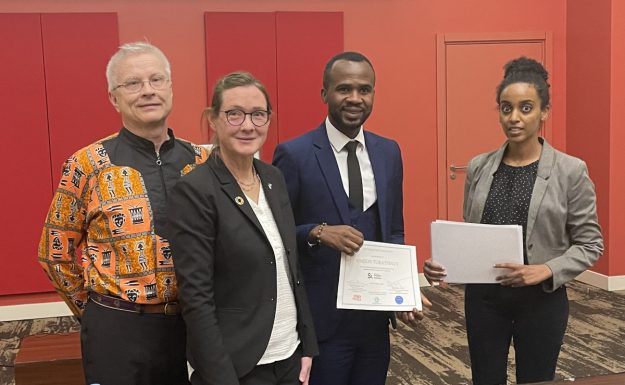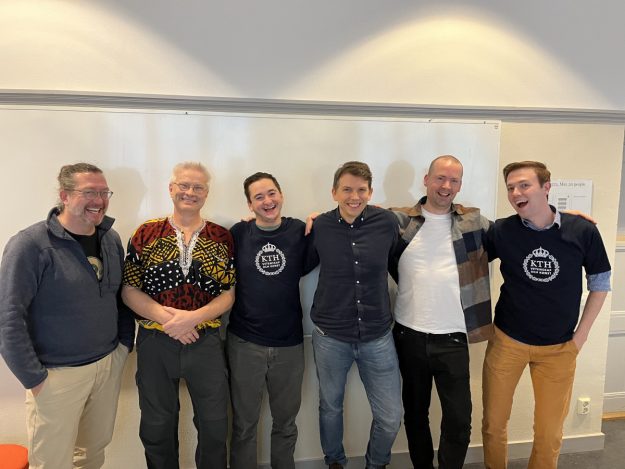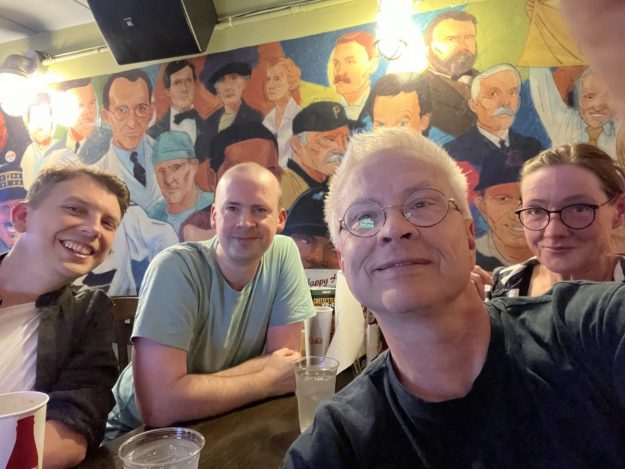
Our paper A Web-Based Program About Sustainable Development Goals Focusing on Digital Learning, Digital Health Literacy, and Nutrition for Professional Development in Ethiopia and Rwanda: Development of a Pedagogical Method has been published in JMIR Formative Research.
Background:East African countries face significant societal challenges related to sustainable development goals but have limited resources to address these problems, including a shortage of nutrition experts and health care workers, limited access to physical and digital infrastructure, and a shortage of advanced educational programs and continuing professional development.
Objective:This study aimed to develop a web-based program for sustainable development with a focus on digital learning, digital health literacy, and child nutrition, targeting government officials and decision-makers at nongovernmental organizations (NGOs) in Ethiopia and Rwanda.
Methods:A web-based program—OneLearns (Online Education for Leaders in Nutrition and Sustainability)—uses a question-based learning methodology. This is a research-based pedagogical method developed within the open learning initiative at Carnegie Mellon University, United States. Participants were recruited during the fall of 2020 from ministries of health, education, and agriculture and NGOs that have public health, nutrition, and education in their missions. The program was conducted during the spring of 2021.
Results:Of the 70 applicants, 25 (36%) were selected and remained active throughout the entire program and filled out a pre- and postassessment questionnaire. After the program, of the 25 applicants, 20 (80%, 95% CI 64%-96%) participants reported that their capacity to drive change related to the sustainable development goals as well as child nutrition in their organizations had increased to large extent or to a very large extent. Furthermore, 17 (68%, 95% CI 50%-86%) and 18 (72%, 95% CI 54%-90%) participants reported that their capacity to drive change related to digital health literacy and digital learning had increased to a large extent and to a very large extent, respectively.
Conclusions:Digital learning based on a question-based learning methodology was perceived as a useful method for increasing the capacity to drive change regarding sustainable development among government officials and decision-makers at NGOs in Ethiopia and Rwanda.

 On October 26-28, 2022, Carnegie Mellon University and KTH successfully held a joint 3-day Workshop on efficient and effective data-driven learning and teaching. There were 30 attendees, mostly from KTH, but also from two companies (NE and ImgPlay) as well as representatives from Uppsala and Mälardalen University. The workshop was structured with an Introduction to question-based learning block in the mornings and Advanced Topics in the afternoon, with Office Hours for the Intro group running simultaneously. The workshop had a focus on hands-on activities and included lecture components as well. The event was sponsored by STINT and IMG Play.
On October 26-28, 2022, Carnegie Mellon University and KTH successfully held a joint 3-day Workshop on efficient and effective data-driven learning and teaching. There were 30 attendees, mostly from KTH, but also from two companies (NE and ImgPlay) as well as representatives from Uppsala and Mälardalen University. The workshop was structured with an Introduction to question-based learning block in the mornings and Advanced Topics in the afternoon, with Office Hours for the Intro group running simultaneously. The workshop had a focus on hands-on activities and included lecture components as well. The event was sponsored by STINT and IMG Play.


 The LearnLab summer school in Pittsburgh was a great opportunity for researchers to learn about a variety of topics related to learning and education. One of the tracks that was offered at the summer school was the OLI track, which focused on teaching courses using the OLI pedagogical methods (aka Question-Based Learning) and learning all the ins and outs of the OLI Torus course creation platform. Andreas Jemstedt, who was a part of the OLI track, found the summer school to be very helpful in learning how to construct courses using the OLI methods.
The LearnLab summer school in Pittsburgh was a great opportunity for researchers to learn about a variety of topics related to learning and education. One of the tracks that was offered at the summer school was the OLI track, which focused on teaching courses using the OLI pedagogical methods (aka Question-Based Learning) and learning all the ins and outs of the OLI Torus course creation platform. Andreas Jemstedt, who was a part of the OLI track, found the summer school to be very helpful in learning how to construct courses using the OLI methods.